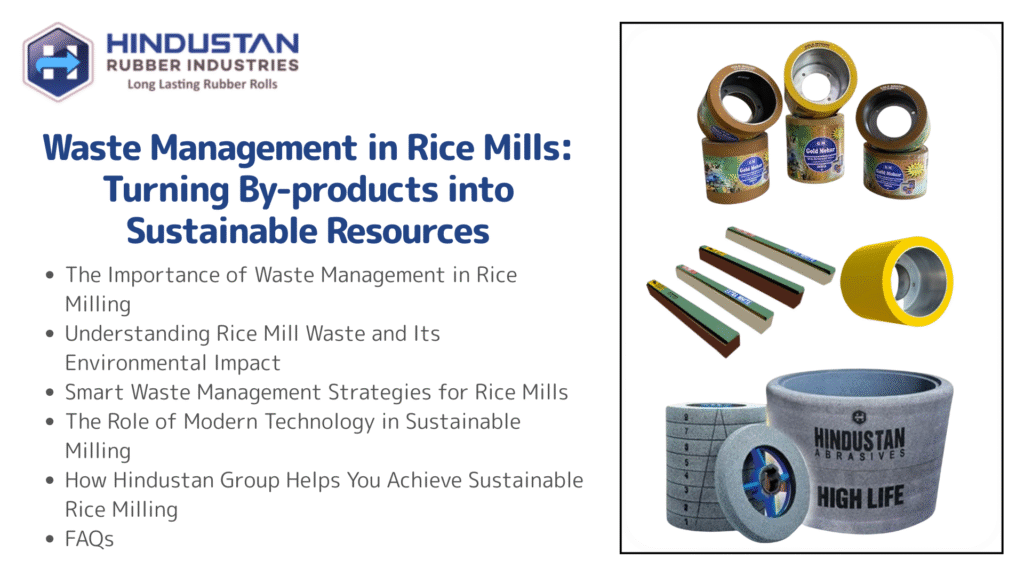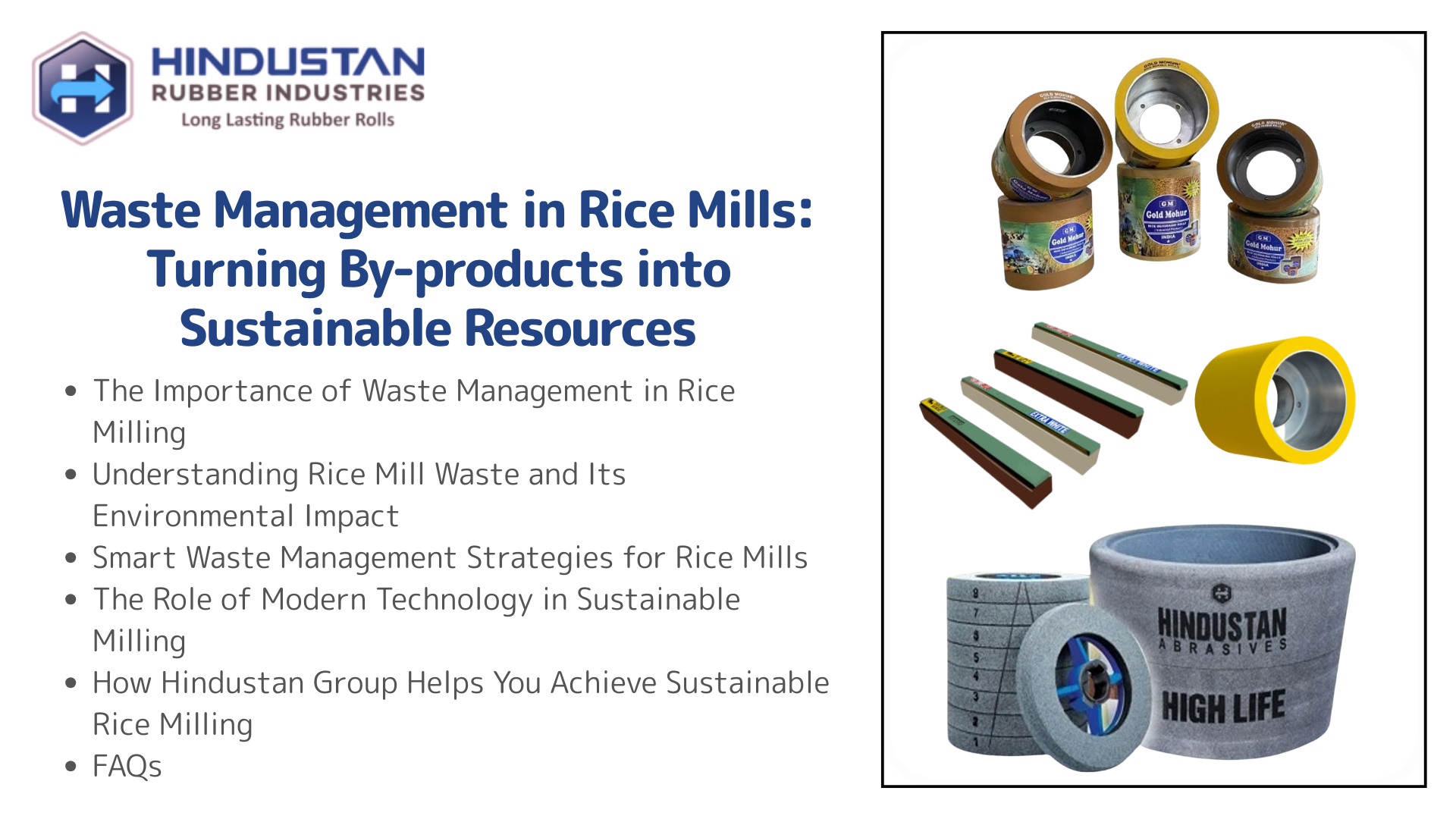Waste Management in Rice Mills: Turning By-products into Sustainable Resources
Table of Contents
The Importance of Waste Management in Rice Milling
Rice milling is one of the most essential agro-industries, but it also generates a significant amount of waste — including husk, bran, broken rice, and wastewater. Traditionally, these by-products were discarded, leading to environmental concerns and economic losses.
Today, with growing awareness and technological advancements, waste management in rice mills has become a crucial part of achieving sustainability, efficiency, and profitability.

By implementing proper waste utilisation techniques and adopting modern rice milling machinery, millers can transform waste into valuable resources, reduce environmental impact, and improve overall operational efficiency.
Understanding Rice Mill Waste and Its Environmental Impact
Rice mills typically produce various forms of waste during the milling process, such as:
- Rice husk: The outer layer of the paddy removed during de-husking.
- Rice bran: A nutrient-rich layer removed during polishing.
- Broken rice: Grains broken during milling and polishing.
- Wastewater: Generated during soaking and parboiling.
- Dust and solid residues: Produced during cleaning and drying operations.
If unmanaged, these wastes can cause air and water pollution, create disposal challenges, and increase operating costs. Hence, effective waste management in rice mills not only benefits the environment but also enhances business sustainability.
Smart Waste Management Strategies for Rice Mills
a. Reusing and Recycling Rice Husk
Rice husk can be converted into biomass fuel, used in boilers to generate energy for the mill itself. It can also be processed into ash, which serves as a raw material in cement, insulation, and silica industries — turning waste into revenue.
b. Valorising Rice Bran
Rice bran is rich in oil and nutrients, making it a valuable by-product. Extracting rice bran oil can generate additional income, while the remaining bran residue can be used as animal feed or fertiliser.
c. Managing Broken Rice
Broken rice can be sold in local markets or processed into rice flour, noodles, or other food products. This not only reduces waste but also diversifies a mill’s revenue streams.
d. Treating and Reusing Wastewater
Installing modern wastewater treatment systems helps remove impurities and allows reuse of water for soaking or cleaning. This practice reduces water consumption and promotes eco-friendly milling.
e. Controlling Dust and Air Pollution
Using advanced dust collectors and filters in rice mills helps maintain cleaner air quality and a healthier workspace, while also preventing environmental pollution.
The Role of Modern Technology in Sustainable Milling
With the rise of automation, IoT, and smart machinery, waste management has become easier and more efficient. Smart sensors and automated systems help:
- Monitor waste levels in real time
- Control energy usage and temperature
- Minimise over-polishing or over-processing of grains
- Reduce overall wastage and operational costs
These technologies enable rice millers to move towards data-driven, energy-efficient operations that align with global sustainability goals.
How Hindustan Group Helps You Achieve Sustainable Rice Milling
At Hindustan Group, we are committed to supporting millers in improving efficiency and reducing waste with our advanced range of rice milling products:
- Rice Rubber Rollers: Reduce grain breakage and wastage during de-husking.
- 1121 Rolls & Parboiled Paddy Rolls: Ensure uniform milling for long-grain and parboiled rice varieties.
- Rice Polishing Wheels: Deliver smooth finishes with less dust and lower power consumption.
- Rice Rubber Polisher Brakes / Sticks: Enhance machine performance and longevity.
- PF Resin: Strengthens rubber components for longer life and consistent quality.
By combining performance with sustainability, Hindustan Group’s innovative rice milling solutions help millers turn waste into opportunity, achieve energy efficiency, and maintain superior milling standards.
👉 Partner with Hindustan Group today to explore eco-efficient, high-performance rice milling solutions tailored to your needs.
Building a Sustainable Future in Rice Milling
Effective waste management in rice mills is no longer optional — it’s a necessity for profitability, environmental compliance, and long-term growth. From recycling rice husk to reusing wastewater, every sustainable step contributes to a cleaner, greener future.
By adopting modern machinery and collaborating with trusted partners like Hindustan Group, rice millers can transform challenges into opportunities and lead the way in sustainable rice production.
Explore the range of our Rice Whitener Stones by Hindustan Group
Rice Rubber Roller | 1121 Rolls | Par Boiled Paddy Rolls | Rice Polishing Wheel | Rice Rubber Polisher Brakes / Sticks | PF Resin

